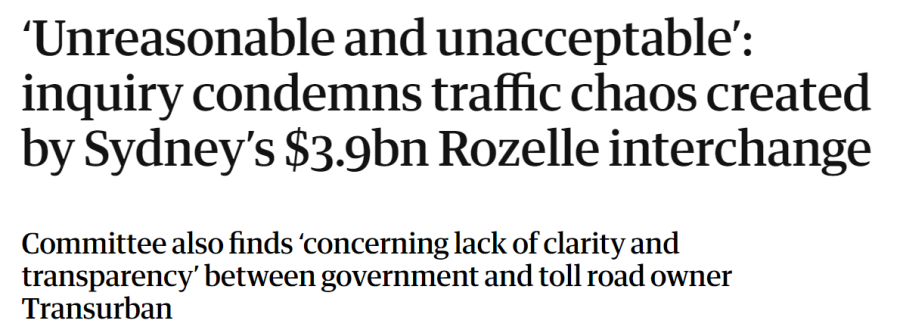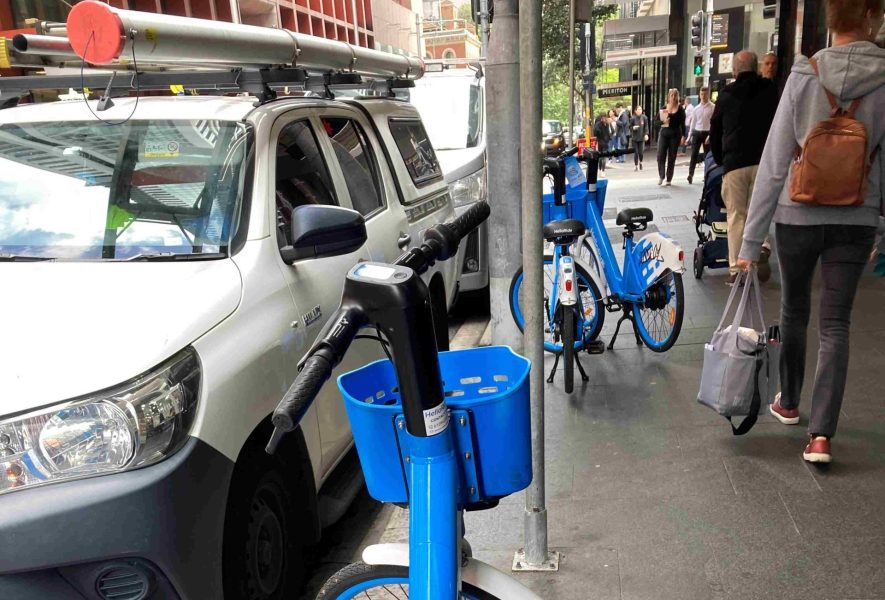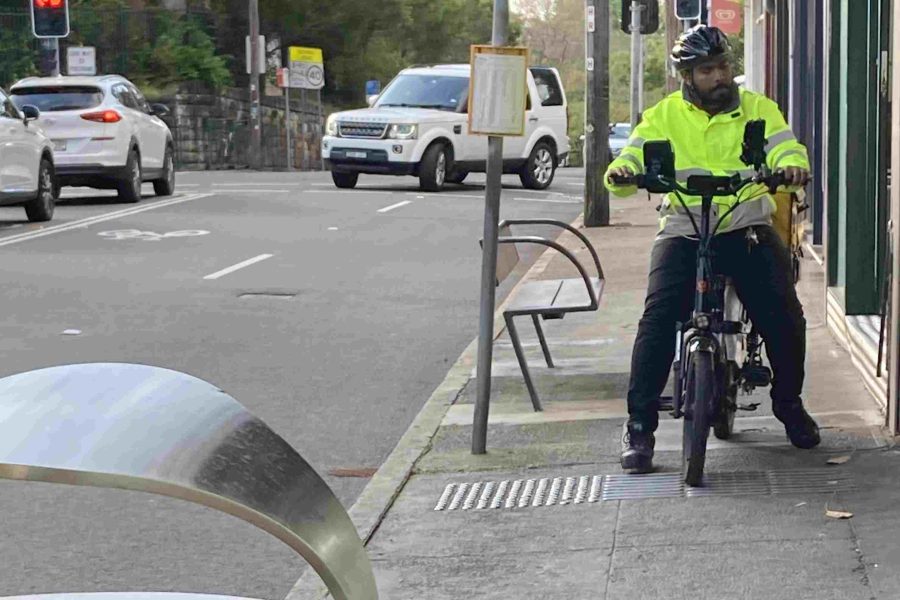By Janet Oakley, Transport and Traffic Subcommittee Convenor, Bulletin 2024/8, October
As a new convenor of the Subcommittee in February this year and as the role was vacant prior to that, this report is limited to the period for which she has been in the role. The only member of the Subcommittee is the Convenor.
Rozelle Interchange

Following the opening of the Rozelle Interchange comments of members of The Glebe Society about its impact were sought. A variety of views were expressed. Submissions were then made on behalf of TGS to the Upper House Inquiry into the Impact of the Rozelle Interchange. Its report has now been delivered.
Broad ranging findings and recommendations were made. Unsurprisingly, the Report found that decisions concerning the Project were motivated by profit maximisation on sale, that there was a lack of transparency and that the resulting traffic congestion was unacceptable.
Of particular interest were Recommendations 2, 8, 14 and 17.
Recommendation 2
That the NSW Government reject:
- Any further privatisation of the State’s roads
- New major road-based infrastructure projects that do not align with government strategy and which are not in the public interest.
Recommendation 8
That Transport for NSW, as an immediate priority investigate and implement mitigation strategies to prevent rat running on local roads that is occurring as a result of the Rozelle Interchange.
Recommendation 14
That the NSW Government ensure there is an ongoing and genuine community engagement and consultation between Transport for NSW, local councils and community members to address issues and concerns following the opening of the Rozelle Interchange.
Recommendation 17
That Transport for NSW, as an immediate priority, investigate additional public transport options, including bus and ferry services, to assist impacted communities and improve traffic congestion resulting from the Rozelle Interchange.
It is understood that the Premier has committed to the recommendation that there be no further privatisation of public roads. It remains to be seen what, if any, steps will be taken to implement recommendations 8, 14 and 17. An immediate consequence of the Inquiry was the reinstatement of the pedestrian crossing on Victoria Road outside the White Bay Power Station.
Bus scheduling
After new bus timetables were introduced the simultaneous scheduling of bus services that cover the same route in Glebe–Forest Lodge became apparent. Because this policy effectively reduces the available services, the Glebe Society wrote to the local member, Kobi Shetty, raising this issue. At this stage no reply has been received.
The reinstatement of the original route of the 370 bus has been promised but is yet to be implemented.
E-scooters, e-bikes & share bikes
Above photos: E-bikes do not belong on the footpath (photos: Janet Oakley)
The Upper House has initiated an inquiry into the use of e-scooters, e-bikes and related mobility options. The Glebe Society made a submission to the Inquiry, summarised below:
- The legislative treatment of e-bikes in the same way as bicycles is not justified from a safety perspective.
- to ensure equitable road and road-related usage and to protect other road users e-bikes should be registered.
- Registration of e-bikes should include third party insurance.
- E-bikes should be prohibited from using footpaths, with the exception of postal workers and people with a disability (as contemplated by Regulation 250 (1)(c) and (1A) of the Road Rules.
- That misinformation and ignorance of current legislation concerning footpath use by bicycles (including e-bikes) be addressed by a publicity campaign.
- That operators of share e-bikes require customers to pick up and return hired e-bikes to designated docks and this necessity be imposed on hire operators either by contract or legislation.
- E-bikes should be subject to the same Road Rules as motor scooters including minimum age and licensing requirements.
The Inquiry has yet to make its report.










There are no comments yet. Please leave yours.